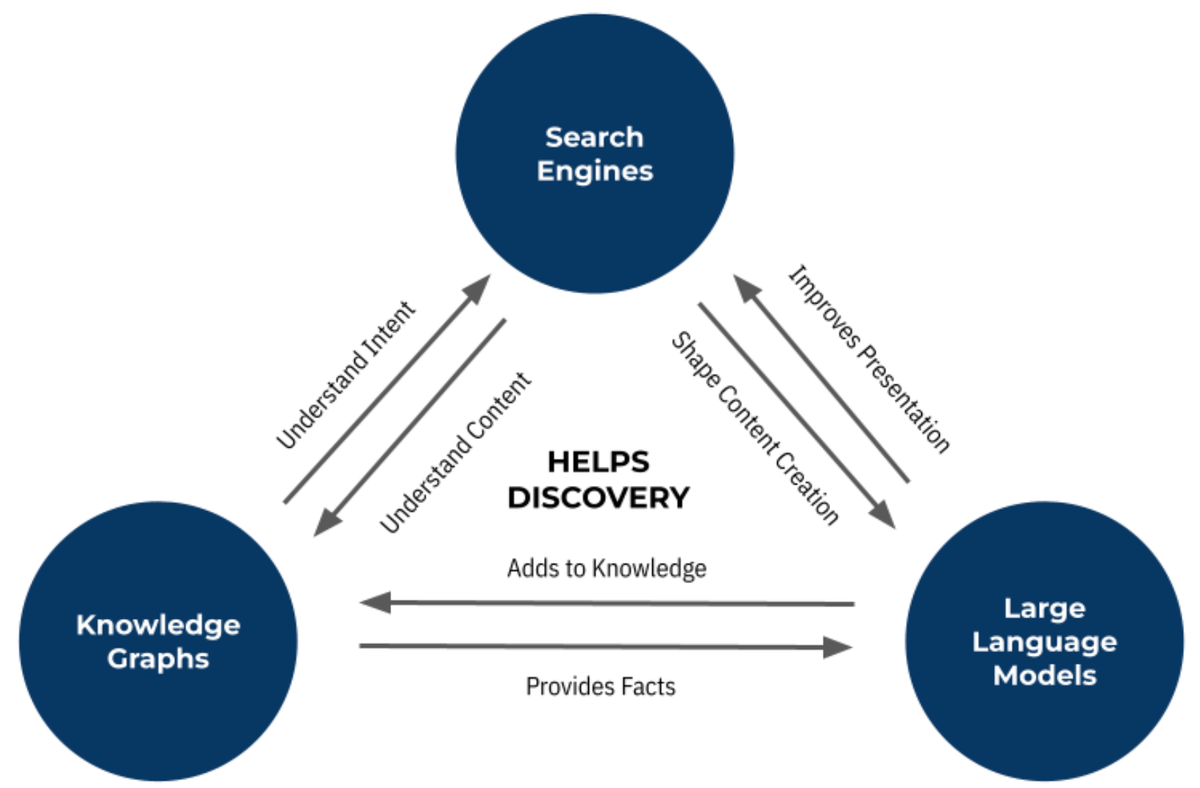Search Engine Optimization: How Search Engine Optimization Adapts to Large Language Models
Discover how Search Engine Optimization evolves with Large Language Models. Learn strategies to optimize content for AI-driven search and enhance online visibility.

Introduction: The Evolution of Search Engine Optimization in the Age of AI
Search Engine Optimization (SEO) has long been the cornerstone of digital visibility, enabling websites to rank higher in search engine results and attract organic traffic. However, the advent of Large Language Models (LLMs) like ChatGPT, Google's Gemini, and Anthropic's Claude is revolutionizing how users seek information online. These AI-powered tools can understand and generate human-like text, providing direct answers to user queries without the need to click through multiple links.Business Insider+2Wikipedia+2WSJ+2
This shift necessitates a reevaluation of traditional SEO strategies. To remain competitive, businesses must understand how LLMs influence search behaviors and adapt their content accordingly. This article explores the intersection of SEO and LLMs, focusing on informational keywords and how to optimize content to answer user questions effectively.LinkedIn+5WSJ+5Business Insider+5I Love SEO+5Autonomous+5Quoleady+5
Understanding Informational Keywords and Their Role in SEO
What Are Informational Keywords?
Informational keywords are search terms used by individuals seeking knowledge or answers to specific questions. These keywords typically begin with words like "how," "what," "why," or "best ways to," indicating that the user is in the research phase of the buyer's journey.
Importance of Informational Keywords in SEO
Targeting informational keywords allows businesses to:The Guardian+2WIRED+2Business Insider+2
- Establish authority by providing valuable information.
- Attract a broader audience at the top of the sales funnel.
- Increase engagement through informative content that addresses user queries.
With LLMs delivering direct answers, optimizing for informational keywords ensures that your content is more likely to be cited or referenced in AI-generated responses.Wikipedia+1Developer Marketing Alliance+1
How LLMs Are Transforming Search Behaviors
Direct Answers Reduce Click-Through Rates
LLMs can process and synthesize information to provide immediate answers to user queries. This capability reduces the need for users to click through multiple search results, impacting traditional metrics like click-through rates (CTR) and page views.
Emphasis on Context and Semantics
Unlike traditional search engines that rely heavily on keyword matching, LLMs understand context and semantics. They can interpret the intent behind a query, making it essential for content to be contextually rich and semantically relevant.Autonomous
Personalized and Conversational Search Experiences
LLMs facilitate more personalized and conversational search experiences. Users can ask complex questions in natural language and receive tailored responses, shifting the focus from keyword optimization to content that aligns with user intent and conversational queries.
Optimizing Content for LLMs: Strategies and Best Practices
1. Focus on Answering Specific Questions
Create content that directly answers common questions related to your industry or niche. Use clear headings and concise paragraphs to make it easier for LLMs to extract relevant information.
2. Utilize Structured Data Markup
Implement structured data (Schema.org) to provide context about your content. This helps LLMs understand the structure and purpose of your content, increasing the likelihood of being featured in AI-generated answers.
3. Incorporate Long-Tail Keywords
Long-tail keywords are more specific and less competitive, making them ideal for targeting niche audiences. LLMs can better match these specific queries with your content, improving visibility.Medium
4. Maintain High-Quality, Authoritative Content
Ensure that your content is well-researched, accurate, and authoritative. LLMs prioritize content from credible sources, so establishing your website as a trustworthy information provider is crucial.
5. Keep Content Updated
Regularly update your content to reflect the latest information and trends. LLMs favor current and relevant content when generating responses.
Frequently Asked Questions
1. How do LLMs affect traditional SEO practices?
LLMs shift the focus from keyword density and backlinks to content relevance and context. SEO strategies must adapt to prioritize high-quality, informative content that aligns with user intent.
2. Can optimizing for LLMs improve my website's visibility?
Yes, by creating content that LLMs can easily interpret and reference, you increase the chances of your website being featured in AI-generated answers, enhancing visibility.Developer Marketing Alliance
3. What types of content are most effective for LLM optimization?
Content that answers specific questions, such as FAQs, how-to guides, and comprehensive articles on niche topics, are effective for LLM optimization.
4. How important is structured data in LLM optimization?
Structured data helps LLMs understand the context and structure of your content, making it more likely to be accurately referenced in AI-generated responses.
5. Should I still focus on traditional SEO metrics?
While traditional metrics like CTR and backlinks remain relevant, it's essential to also consider how your content performs in AI-driven search environments.
Expert Insights
"Content is what the search engines use to fulfill user intent."
— Dave Davies, Co-founder of Beanstalk Internet Marketing
"Impactful SEO is rarely executed by a lone wolf."
— Jes Scholz, International Digital Director at Ringier AG
External Resources
- Google's SEO Starter Guide: A comprehensive resource for understanding SEO fundamentals.
- Moz's Beginner's Guide to SEO: An in-depth guide covering all aspects of SEO.
- SEMrush Blog: Offers insights and updates on SEO trends and best practices.
Conclusion: Embracing the Future of SEO with LLMs
The integration of Large Language Models into search engines marks a significant shift in how users access information online. To stay ahead, businesses must adapt their SEO strategies to align with these changes. By focusing on informational keywords, creating high-quality content that answers specific questions, and utilizing structured data, you can enhance your visibility in AI-driven search results.WIREDAutonomous
Take Action Today: Evaluate your current content strategy, identify opportunities to address common user questions, and implement structured data to improve how LLMs interpret and reference your content. Embracing these practices will position your website for success in the evolving landscape of search engine optimization.
